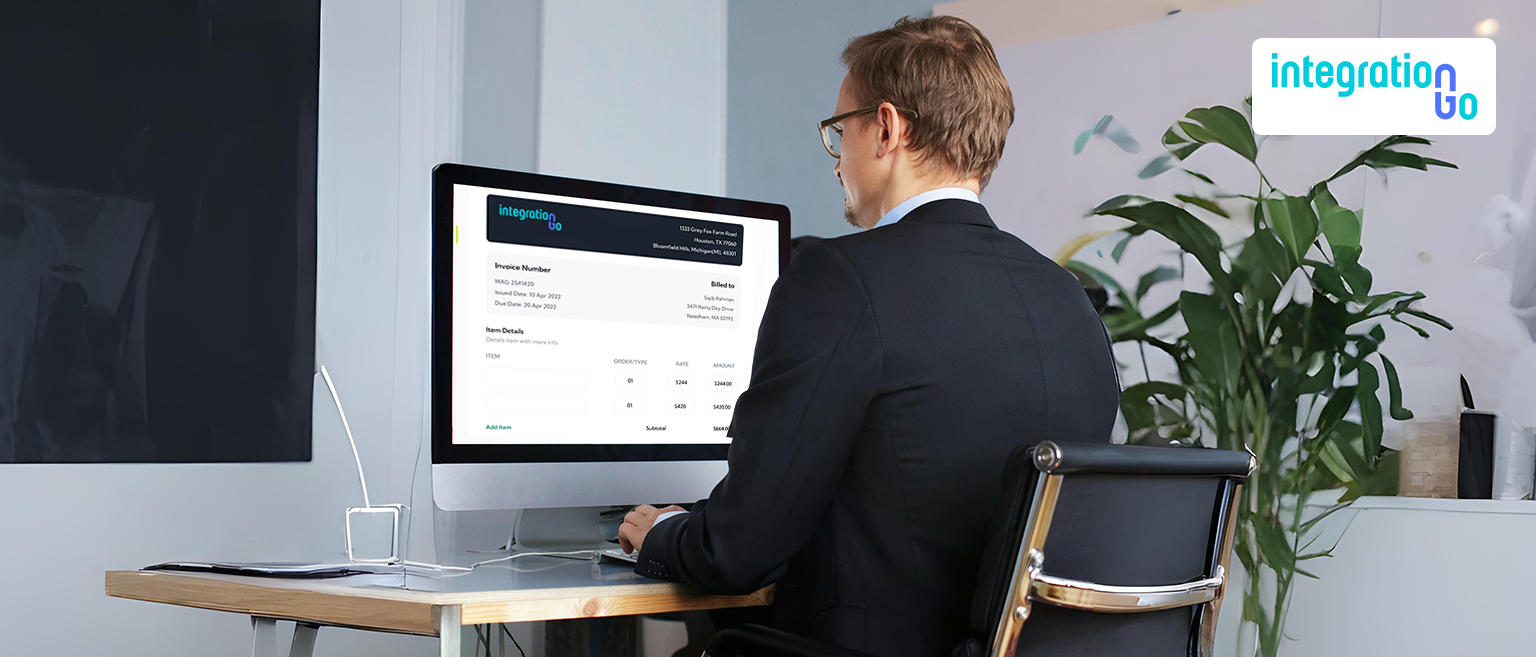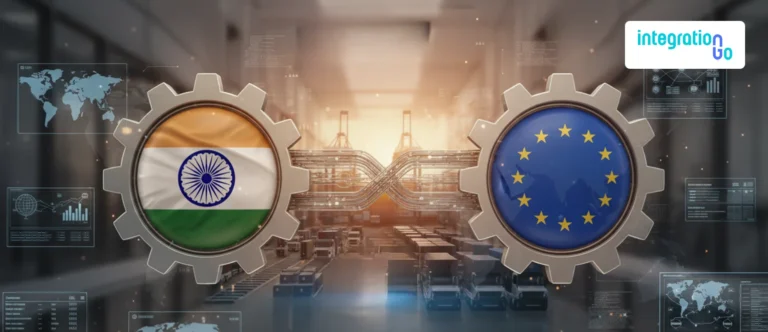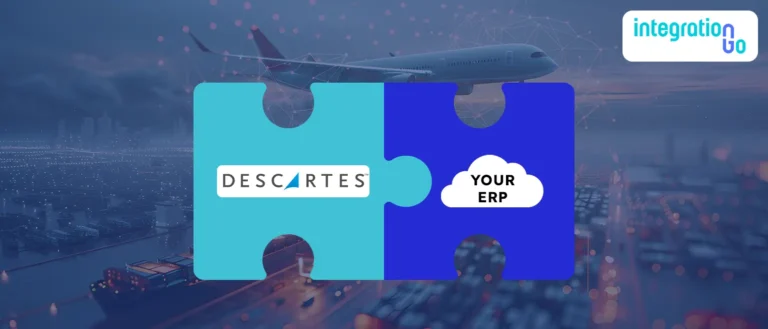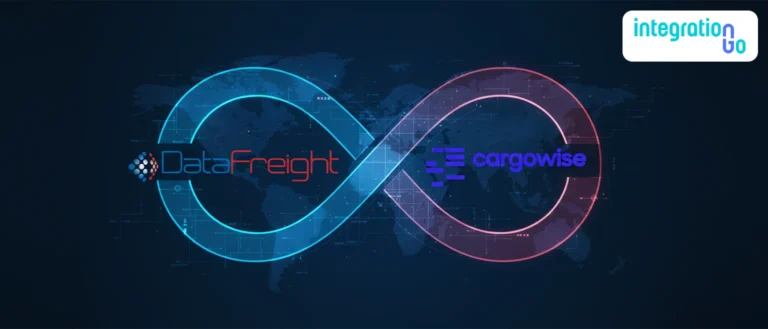Invoices are essential to logistics. When your invoicing process is manual, disconnected, or filled with duplicate data entry, you're not simply holding down cash flow; you're also risking tax problems, compliance concerns, and customer frustration.
For logistics experts and freight forwarders who work with tight margins and worldwide timetables, automating e-invoicing is essential for accuracy, speed, and survival. Additionally, integrating e-invoicing directly with your ERP is one of the best decisions you can make if you're using platforms like CargoWise, SAP, Oracle, Magaya, Infor, or project44.
No matter where you're shipping to or from, we'll explain how e-invoicing integration works, why it's revolutionary for logistics companies, and how you can maintain compliance, cut down on manual labor, and stay ahead of tax laws in this blog.
What Is E-Invoicing Integration and Why Does It Matter?
The process of directly integrating your logistics management system or ERP into your government's e-invoicing site is known as e-invoicing integration. This implies that the information on your invoice, including amounts, tax information, vendor details, and line items, is automatically structured, verified, and submitted in compliance with the tax laws of your nation.
For instance, the integration automates the entire process in real-time, eliminating the need to create an invoice in CargoWise or SAP, save it as a PDF, and then manually upload it to a government portal (and hope it's accurate).
You click “Generate Invoice,” and behind the scenes:
- The invoice is automatically formatted per the government schema
- Taxes are calculated correctly based on real-time rules
- The invoice is submitted via API to the tax authority
- You get a live status update: approved, rejected, or pending
It’s fast, accurate, and compliant.
Why Is E-Invoicing Integration Crucial for Freight Forwarders?
Logistics is a high-volume, low-margin enterprise. That means efficiency isn't simply a goal, it's a necessity. And one of those back-office tasks that may either function smoothly in the background or turn into a constant source of trouble is invoicing.
Here’s where integration makes a real difference:
1. It Cuts Down on Manual Work
Manually preparing and uploading invoices takes time. When you're generating dozens or even hundreds of invoices a day, doing it manually drains your team’s energy and increases the risk of errors. Integration means your invoices are created and submitted automatically, saving time on every transaction.
2. It Eliminates Costly Errors
Wrong tax rate? Missing field? Typo in a company ID? These mistakes don’t just delay payments, they can also trigger government fines or compliance penalties. Integrated systems use validated, real-time tax rules and data straight from your ERP, drastically reducing the chance of human error.
3. It Keeps You Compliant, Everywhere
Global freight forwarders have to deal with different invoicing regulations in every country they operate in. India mandates real-time invoice submission. Saudi Arabia uses QR-coded e-invoices. Europe’s moving to structured B2B e-invoicing. With proper integration, your system can adapt automatically to each country's unique format and rules, without burdening your finance team.
4. It Speeds Up Your Cash Flow
Every day your invoice sits in uncertainty is a day you’re not getting paid. Integrated invoicing ensures invoices are submitted instantly, increasing your chances of faster approvals and payments, especially if you're dealing with large shippers or government contracts.
5. It Gives You Visibility in Real Time
Forget following up via email or logging into government sites to check invoice statuses. With e-invoicing integration, you can see if your invoice was accepted, rejected, or flagged for review, directly inside your ERP.
How E-Invoicing Integration Works Behind the Scenes
Perhaps you're asking yourself, "What's going on behind the scenes when we integrate e-invoicing?"
Here’s how a well-executed integration works step by step:
Invoice Creation
You generate a shipment or transaction in your ERP like CargoWise, SAP, Oracle, Magaya, or whatever system you use.
Data Mapping
The integration tool pulls all relevant data, like invoice numbers, shipment IDs, tax codes, values, and sender/receiver info, from your ERP.
Validation and Formatting
The data is validated and transformed into the required format for your country’s e-invoicing portal (e.g., JSON, XML, or custom government schemas).
Submission to the Tax Authority
The formatted invoice is submitted via secure API to the local government e-invoicing system.
Live Response
You receive a real-time response: success, failure, or additional action required. This updates directly in your ERP, closing the loop.
Archiving
Invoices and responses are automatically archived for audit purposes, so you’re always ready if regulators come knocking.
Why IntegrationGo Is the Ideal Partner for E-Invoicing Integration
At IntegrationGo, we specialize in ERP and logistics system integration, and e-invoicing is one of our most in-demand solutions. Here's what makes us different:
Seamless Compliance Across Regions
We understand the regional nuances of e-invoicing, whether you're operating in the U.S., India, Saudi Arabia, or Europe. Our adapters are customized to local rules, so your invoices are always tax-compliant.
Deep ERP Experience
We don’t just plug into one system. Our platform integrates with CargoWise, SAP, Oracle, Infor, Magaya, project44, and other leading ERPs. So whether you’re a freight forwarder, customs broker, or 3PL, we’ve got your tech stack covered.
Fully Managed Service
You won’t be left guessing. We handle the setup, API configuration, tax rule syncing, ongoing monitoring, and support. Need to adapt to a new regulation? We handle that too.
Built for Scale and Security
Our cloud-based infrastructure supports high-volume invoice processing with 99.99% uptime and enterprise-grade security. You don’t have to worry about outages or compliance gaps.
Conclusion
If your logistics or freight forwarding company still spends hours manually inputting invoices, chasing regulatory compliance, or fixing tax deviations, it's time to change that.
So that you can concentrate on moving freight rather than battling paperwork, the CargoWise integration solution makes e-invoicing easy, scalable, and stress-free.
To begin creating a more efficient invoicing system for your company, schedule a call with our team right now.




